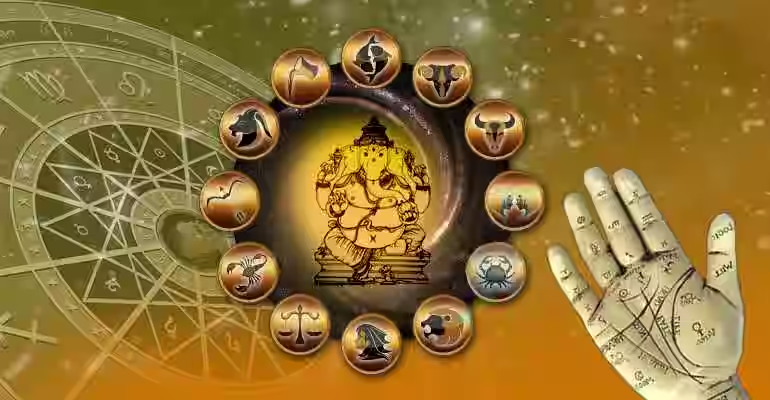Understanding Jyotish Shastra: The Ancient Science of Vedic Astrology
Jyotish Shastra, commonly known as Vedic astrology, is an ancient Indian science that has been guiding people for millennia. Rooted in the Vedas, the sacred texts of India, Jyotish Shastra is a sophisticated system that provides insights into an individual’s life, destiny, and spiritual journey. This blog explores the fascinating world of Jyotish Shastra, its principles, and its applications in modern life.
The Origins of Jyotish Shastra
Jyotish Shastra, meaning “science of light,” is one of the six Vedangas, or limbs of the Vedas, essential for understanding and practising Vedic rituals and knowledge. It is believed to have been divinely revealed to ancient sages and meticulously documented over thousands of years. The primary texts, such as the Brihat Parashara Hora Shastra and the works of sages like Varahamihira, form the foundation of Vedic astrology.
The Core Components of Jyotish Shastra
Jyotish Shastra is based on the observation and interpretation of celestial bodies, primarily focusing on the following components:
-
Zodiac Signs (Rashis):
- There are 12 zodiac signs, each representing specific characteristics and traits. These signs are similar to those used in Western astrology but are calculated differently based on the sidereal zodiac.
-
Planets (Grahas):
- Vedic astrology considers nine planets: Sun (Surya), Moon (Chandra), Mars (Mangal), Mercury (Budh), Jupiter (Guru), Venus (Shukra), Saturn (Shani), and the two lunar nodes, Rahu and Ketu. Each planet has a distinct influence on various aspects of life.
-
Houses (Bhavas):
- The birth chart, or Kundali, is divided into 12 houses, each representing different life areas such as personality, wealth, communication, family, and career. The placement of planets in these houses influences an individual’s life experiences.
-
Nakshatras (Lunar Mansions):
- The zodiac is further divided into 27 Nakshatras or lunar mansions. Each Nakshatra has its own deity, symbol, and specific qualities, providing a more detailed analysis of an individual’s nature and destiny.
-
Dashas (Planetary Periods):
- The Dasha system outlines the timeline of planetary influences throughout a person’s life. The most commonly used system is the Vimshottari Dasha, which assigns specific periods ruled by each planet, helping to predict events and life changes.
Applications of Jyotish Shastra
Jyotish Shastra is not just about predicting the future; it offers profound insights and guidance for various aspects of life:
-
Personal Guidance:
- Understanding one’s birth chart helps individuals gain clarity about their strengths, weaknesses, and life purpose. It offers a roadmap for personal growth and self-awareness.
-
Career and Finances:
- Jyotish Shastra provides guidance on career choices, financial planning, and professional growth. By analyzing the planetary positions, one can identify suitable professions and times for financial decisions.
-
Relationships:
- Compatibility analysis, known as Kundali matching, is a common practice in Vedic astrology. It assesses the compatibility of two individuals, often used in marriage arrangements to ensure harmonious relationships.
-
Health:
- Vedic astrology can highlight potential health issues and suggest remedies to mitigate adverse planetary influences. It provides insights into physical and mental well-being, helping individuals maintain a balanced lifestyle.
-
Auspicious Timing:
- Choosing the right time for important events, such as starting a business, buying property, or getting married, is crucial in Jyotish Shastra. The Muhurta, or electional astrology, helps identify the most auspicious moments for success and prosperity.
Remedies in Jyotish Shastra
Jyotish Shastra also offers various remedies to alleviate the negative effects of planetary positions and enhance positive influences:
-
Mantras and Chants:
- Reciting specific mantras associated with planets can help mitigate their adverse effects and attract positive energies.
-
Gemstones:
- Wearing gemstones corresponding to favorable planets can enhance their beneficial influences and protect against malefic ones.
-
Charity and Rituals:
- Performing charitable acts, rituals, and donations aligned with planetary requirements can help balance karmic energies.
-
Yantras:
- Yantras are mystical diagrams that represent cosmic energies. They are used for meditation and to attract specific energies into one’s life.
Conclusion
Jyotish Shastra, with its deep roots in Vedic wisdom, offers a holistic approach to understanding life and destiny. It provides valuable insights and practical guidance for personal growth, relationships, career, and health. By exploring Jyotish Shastra, we can uncover the mysteries of our past, navigate the challenges of the present, and illuminate the path to a fulfilling future. Whether you seek self-awareness, guidance, or spiritual growth, Jyotish Shastra is a timeless science that continues to enlighten and inspire.

